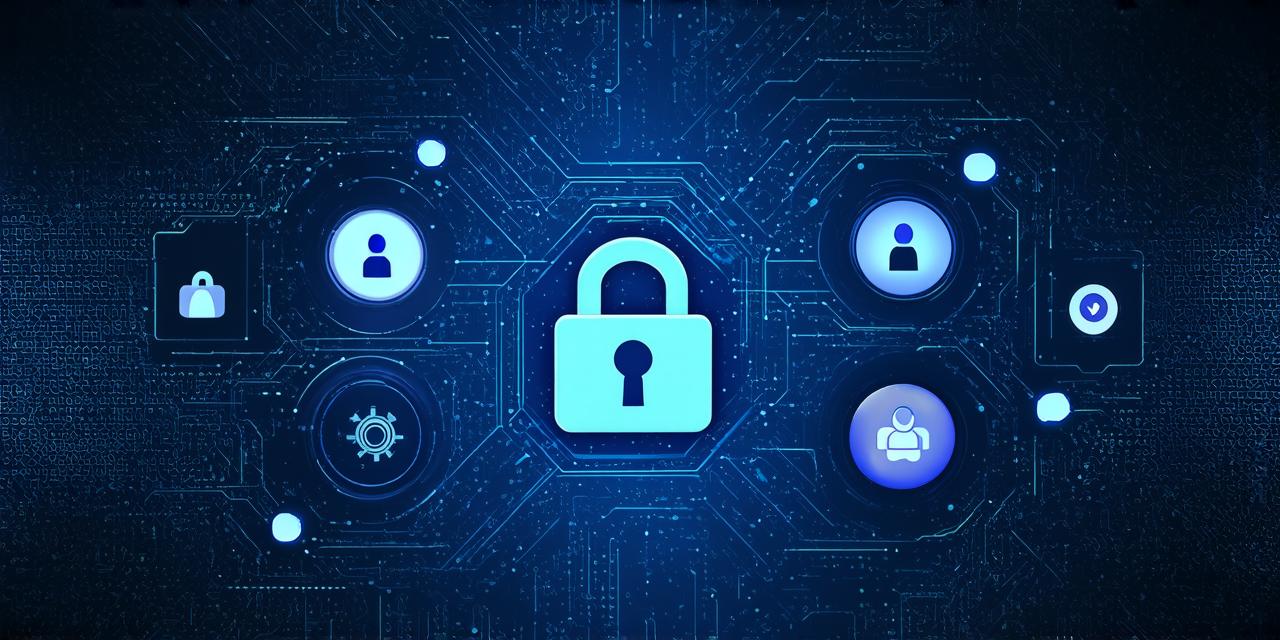Increased Security
One of the main benefits of using blockchain for identity data is increased security. Blockchain technology is decentralized, meaning that there is no central point of failure. This makes it much more difficult for cybercriminals to compromise the system, as they would need to gain access to multiple nodes in order to disrupt operations.
Additionally, blockchain uses cryptographic algorithms to secure data and transactions. These algorithms make it virtually impossible for unauthorized parties to access or alter information on the ledger. This provides a high level of security for identity data, which is particularly important in today’s digital age where cyber threats are constantly evolving.
Privacy
Another benefit of using blockchain for identity data is increased privacy. Blockchain technology allows individuals to control their personal information and decide who has access to it. This means that sensitive data like social security numbers and biometric data can be kept private and only shared with authorized parties.
Control Over Personal Information
In addition to increased security and privacy, blockchain technology also provides individuals with greater control over their personal information. With blockchain, individuals can create a digital identity that is unique to them and that they can manage themselves. This means that they can decide what information to share with others and who has access to it.
Real-Life Examples
There are a number of real-life examples of blockchain technology being successfully implemented for identity management. One such example is the Estonian e-residency program, which uses blockchain technology to securely manage the identities of e-residents. This program has been praised for its ease of use and high level of security.
Another example is the Blockpool Identity platform, which allows individuals to create a digital identity that they can manage themselves. This platform uses blockchain technology to provide greater control over personal information and ensure that it is securely managed.
Challenges Associated with Using Blockchain for Identity Management
Despite its many benefits, using blockchain for identity management is not without its challenges. One of the main challenges is scalability. Blockchain technology can be slow and expensive to implement on a large scale, which can make it difficult to manage the identities of millions of people.
Another challenge is interoperability. Currently, there are no widely accepted standards for blockchain-based identity management systems, which can make it difficult to share information between different systems. This lack of interoperability can make it more difficult to use blockchain for identity management.
FAQs
1. How does blockchain technology secure identity data?
Blockchain uses cryptographic algorithms to secure data and transactions, making it virtually impossible for unauthorized parties to access or alter information on the ledger.
2. What are the benefits of using blockchain for identity management?
The main benefits of using blockchain for identity management include increased security, privacy, and control over personal information.
3. Are there any real-life examples of blockchain being successfully implemented for identity management?
Yes, there are a number of real-life examples of blockchain technology being successfully implemented for identity management, including the Estonian e-residency program and the Blockpool Identity platform.

4. What are the challenges associated with using blockchain for identity management?
The main challenges associated with using blockchain for identity management include scalability, interoperability, and regulatory hurdles.
Summary
In conclusion, blockchain technology has the potential to revolutionize the way that identity data is managed and secured. By providing increased security, privacy, and control over personal information, blockchain can help individuals and organizations protect their sensitive data from cyber threats. However, it is important to be aware of the challenges associated with using blockchain for identity management and to carefully consider the benefits and drawbacks before implementing such a system. With careful planning and implementation, blockchain technology can provide a powerful tool for securing identity data in today’s digital age.
